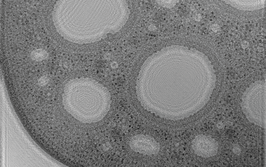
Trust Is Earned
Tips and tricks for an effective clinical pathology consultation
Off-hours test requests tend to pit the laboratory against the clinician, which often risks the strength of interdisciplinary cooperation. Collaboration between clinical pathologists/PhDs and clinicians forms the best health care team – and here, Gene R. Shaw discusses how to achieve exactly that…
Many pathology practices have a call schedule for clinical pathology that largely revolves around approving or denying esoteric test requests during off-hours. In academic settings, trainees are typically given a beeper (or, nowadays, a cell phone) and put on call to field these requests. Unfortunately, this tends to pit the laboratory against the requesting physician – clearly not an ideal situation for interdisciplinary cooperation. So how can this gatekeeper role be handled without either side risking its relationship with the other? And, in a broader sense, how can clinical pathologists and clinical PhDs effectively collaborate with colleagues who interact directly with patients to improve overall care?
The on-call gatekeeper
Many tests cannot be offered routinely 24/7 because of limited staffing or instrumentation that is not up and running. Pathologists and clinical PhDs are tasked with balancing clinical necessity against the financial costs of such off-hours testing – staffing, instrumentation, reagents, and more. And, when it comes to disruption of lab personnel, don’t expect to get much sympathy from the on-call physician who is managing the patient in the middle of the night.
Here is some practical advice:
- During the initial phone call, gather information, but don’t make any promises. Do not ask the seemingly logical question, “Will this test result change the management of the patient?” Any halfway savvy clinician will always answer, “Yes!” And then you’ve backed yourself into a corner where approval is expected.
- A better approach is to start the conversation with the following statement: “I will have to check on staff and instrumentation availability to see if the test can be performed.” You want the tone to be one of collaboration; you are both on the same team and you will explore what can be done. Then proceed to gather clinical information. Inpatient or outpatient? Has the sample already been collected? Will someone be available to receive and respond to the lab result during off-hours? Conclude by getting a contact number with whom to follow up, once a decision on whether to proceed with off-hours testing is made.
- Now go into the medical record and gather additional patient-specific information. If this is an area with which you have limited familiarity, contact a lab colleague. This could be another pathologist/PhD who directs that section of the lab, or it might be an experienced technologist in that lab section. Sometimes, the request is obviously inappropriate and you may hear, “Not another one of these!” Other times, it may be clearly indicated. Not infrequently, it is a “gray zone” issue – and, in those cases, offering the test first thing during regular hours (for instance, on Monday morning) will often suffice.
- Beyond this, there is no cookbook approach; each situation needs to be assessed individually. As a laboratorian, you need to do your homework. Convincing a clinical colleague to cancel or change a test request usually requires that you know the test(s) better than they do regarding specimen requirements, stability, turnaround time, diagnostic sensitivity/specificity, alternative testing options, and so on. Don’t be deterred. Do the right thing for patient care and for appropriate utilization of lab resources. Remember, you have worked hard to have the letters MD, DO, or PhD behind your name, too.
A question of test utilization
A large percentage of ordered lab tests are not indicated for a variety of reasons. Often, it’s because they’re redundant; busy physician A may not know that busy physician B ordered that test only a few hours ago. Sometimes, physicians order tests out of habit, rather than based on current evidence-based guidelines. Other times they “know enough to be dangerous” – they have read a recent article about a new test, but don’t fully understand its costs and limitations.
Nevertheless, many (perhaps even most) physicians don’t feel that they need assistance in ordering or interpreting lab tests. After all, it’s what they do every day. So, as a laboratorian, you’ll have to prove your worth. If you only function in the off-hours gatekeeper role, you may be viewed as an obstacle rather than an ally. Look for opportunities to proactively interact with your clinical colleagues. Call or email them with a “heads-up” on an unusual result. Send them an insightful article on an area of interest. Work closely with technical staff to stay updated on unusual results, interferences, and instrumentation or reagent issues. Encourage questions from clinical colleagues.
In a broad sense, test utilization encompasses the lab test menu and how the test is offered. Tests of very limited clinical utility should be “buried” far down in the ordering options. Newsletters, presentations to key clinical departments, and grand rounds can all be used to raise awareness and increase understanding – but with a caveat: increasingly busy and distracted clinicians often don’t read or attend. And, if they do, they have often forgotten the salient information a few weeks later when they actually need to order the test. Thus, succinctly communicating information at the time of test ordering is the most effective means of impacting behavior.
Fortunately, there are now many information technology tools that can help. Several months ago our lab implemented a pop-up window in our test ordering software. It informs clinicians that dilute Russel viper venom time (DRVVT) and partial thromboplastin time-lupus anticoagulant (PTT-LA) should not be ordered for patients taking the new direct oral anticoagulants (apixaban, rivaroxaban, or dabigatran) because of the likelihood of false-positive results. This fits nicely with the Choosing Wisely campaign’s September 2019 recommendation: “Do not perform a hypercoagulable workup in patients taking direct factor Xa or direct thrombin inhibitors.”
Monitor tests that are frequently inappropriately ordered. Focusing on expensive tests may yield more “buck for your bang.” As a hematopathologist, I use our cytogenetics staff to police not only conventional cytogenetics, but also molecular tests for hematologic neoplasms (for example, JAK2/CALR/MPL, BCR-ABL, plasma cell proliferative disorder FISH, next-generation sequencing panels). We assess previous testing, specimen adequacy, indications, and liberally communicate with our physicians. We typically cancel or change two to four tests every business day, with a cost savings exceeding US$1,000 per day. We also continually modify current tests, introduce new tests, and discontinue (or outsource) obsolete tests – a practice I recommend to all laboratories. Two notable recent examples from our lab have been the change to age-adjusted D-dimer testing and the introduction of high-sensitivity cardiac troponin I testing with a zero- and two-hour rule-out algorithm. Use these changes as teaching opportunities with your clinical staff.
Being based in the laboratory gives you a unique perspective on lab testing. You see far more abnormal results on a regular basis than your clinical colleagues. By using that information and communicating effectively with those colleagues, you will earn their trust as a valued member of the health care team.

Hematopathologist at the Marshfield Clinic, Marshfield, Wisconsin, USA.




















